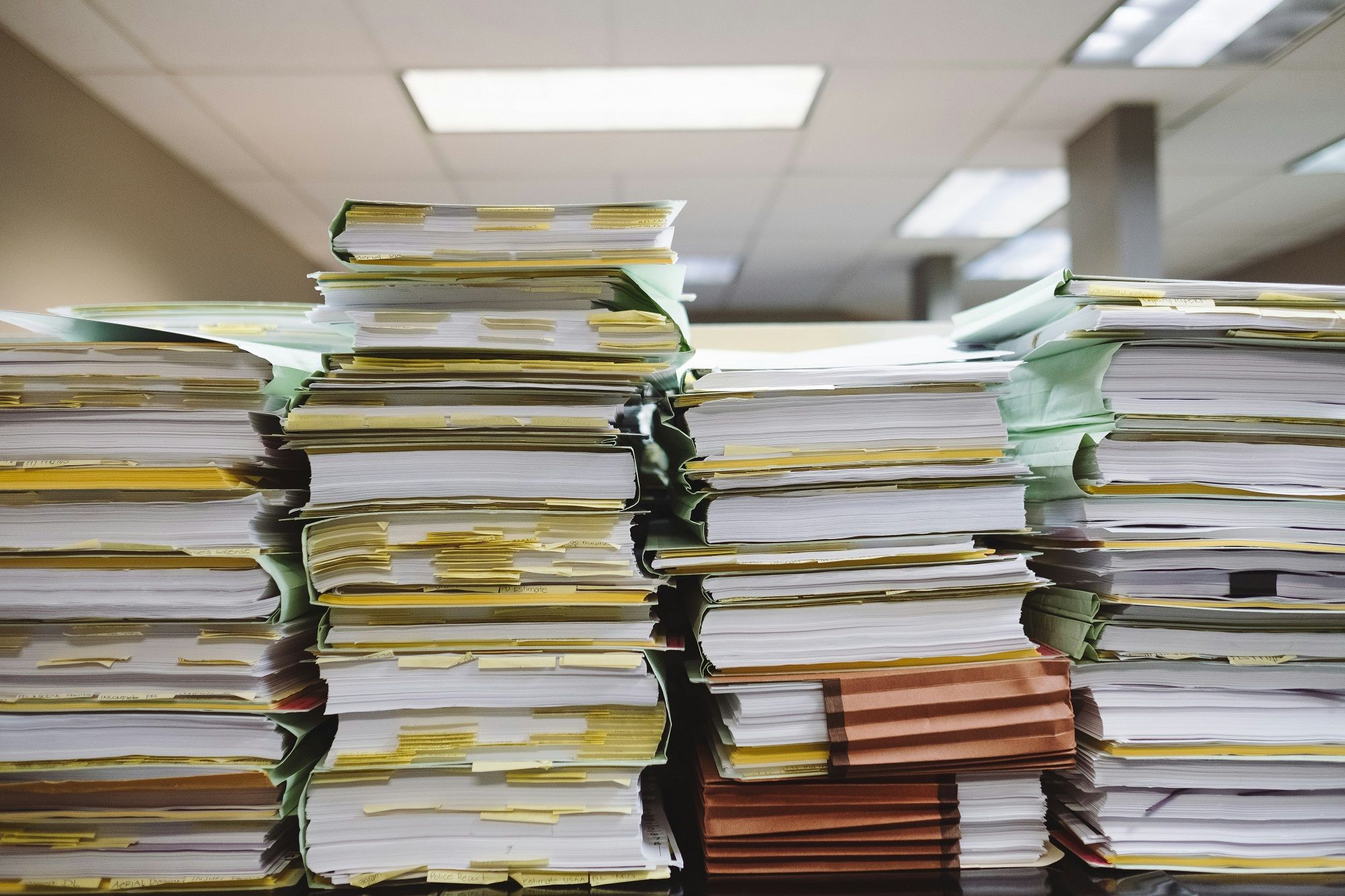- 12 June 2025
- No Comment
- 1391
Inside the BAE Systems Bribery Scandal: Power, Money, and Justice

Imagine a world where billions of dollars flow through secret bank accounts, luxury yachts and private jets are gifted to royalty, and investigations into corruption are halted by threats to national security. This isn’t a plot from a spy thriller; it’s the reality exposed in the documentary Black Money (Frontline).
The documentary delves into the murky depths of international bribery, focusing on the al Yamamah arms deal, a massive contract between the United Kingdom and Saudi Arabia involving BAE Systems. This story isn’t just about a single company or contract; it’s a window into a trillion-dollar industry where corporations and heads of state engage in covert transactions, often shielded from public scrutiny.
At its heart, this is a tale of power, money, and morality—or the lack thereof. It begins in 1985 with a deal that would become synonymous with corruption and secrecy, and it continues to resonate in discussions about global ethics today.
As we unpack this case, we’ll explore how bribery thrives in the shadows, the challenges of enforcing anti-corruption laws, and the human cost of such practices. Through the courage of whistleblowers, journalists, and investigators, we’ll see how even the most powerful can be held accountable—if only partially—when the light of truth is shone on their actions.
The Global Curse of International Bribery
International bribery is a pervasive problem, costing the global economy trillions of dollars each year. It distorts markets, undermines fair competition, and erodes public trust in institutions. The United States took a pioneering step in 1977 with the Foreign Corrupt Practices Act (FCPA), making it illegal for companies using the US financial system to bribe foreign officials.
However, it wasn’t until 1997 that the Organization for Economic Co-operation and Development (OECD) adopted the Anti-Bribery Convention, requiring member countries to criminalize foreign bribery.
Despite these efforts, enforcement remains uneven. Many countries face pressure to prioritize economic interests over ethical standards, as seen in the BAE Systems case. This case serves as a stark reminder of the challenges in combating corruption when powerful players are involved, highlighting the need for stronger international cooperation and transparency.
The Birth of Al Yamamah
In 1985, against the backdrop of the Cold War and rising tensions in the Middle East, the United Kingdom and Saudi Arabia signed the al Yamamah arms deal, the largest export contract in British history, valued at over $80 billion (Al-Yamamah Deal). The deal, named “the dove” in Arabic, involved the sale of 120 Tornado fighter jets, Hawk trainer planes, and other military equipment to the Saudi Arabian air force. It was structured as a government-to-government agreement, with BAE Systems (then British Aerospace) as the prime contractor.
The deal was a political triumph for then-Prime Minister Margaret Thatcher, who saw it as a way to secure thousands of jobs and bolster the UK’s defense industry. “I can remember when Mrs. Thatcher told me that she had signed this fantastic contract that would secure thousands of jobs and create great wealth for Britain,” recalled Lord Timothy Bell, a public relations adviser.
For Saudi Arabia, the deal was a step toward modernizing its military, orchestrated by Prince Bandar bin Sultan, the Saudi ambassador to the United States.
Prince Bandar, known for his charm and political acumen, was a master dealmaker with deep connections in both Washington and London. His close ties to the Bush family earned him the nickname “Bandar Bush.” “He’s a master diplomat,” said former US President Jimmy Carter, who went quail hunting with Bandar, a sign of their close friendship. Bandar’s role was pivotal, navigating the geopolitical complexities of securing arms from the UK when direct purchases from the US were politically sensitive due to the Israel lobby.
The deal’s structure added to its mystique. Saudi Arabia paid for the arms with oil, which was sold to produce cash that was exempt from public accounting. This lack of transparency fueled suspicions of corruption, with whispers that much of the money was being siphoned off by Saudi royals and officials.
The Whispers of Corruption
The first hints of wrongdoing came from unlikely sources. Peter Gardiner, a high-end travel agent in London, had a front-row seat to the extravagance of the Saudi royals. His clients included Prince Turki bin Nasser, the deputy commander of the Royal Saudi Air Force and administrator of the al Yamamah contract. Gardiner arranged for private jets, luxury accommodations, and shopping sprees for the prince and his family—all billed to BAE Systems.
“I could see the lifestyle of people improving vastly during this period,” Gardiner recalled. “Money didn’t seem to be tight anymore. There was the long-term building taking place in Beverly Hills, and there were some very nice aircraft that were appearing, and there was a Yacht”.
Gardiner’s invoices to BAE totaled around $100 million over the years, covering everything from honeymoons for Prince Bandar’s daughter to cargo jets filled with shopping purchases. On one occasion, he chartered a 747 to transport shopping from Los Angeles to Saudi Arabia. “It’s the lifestyle that many people would like to have if they could afford it,” he quipped, noting the diplomatic passports that added to the princes’ untouchable aura.
These expenditures were disguised as “support and accommodation services,” masking their true nature as potential bribes. Gardiner described himself as a “super-duper valet,” required to be on call 24/7, with every expense needing BAE’s authorization. “It was unique,” he said, noting he had never seen anything like it before or since.
David Leigh, an investigative journalist for The Guardian, was one of the first to shine a light on these allegations. Tipped off by whistleblowers like Gardiner, Leigh published a series of front-page stories detailing BAE’s slush fund and the lavish spending on Saudi officials. “The documents surprised me for two reasons,” Leigh said. “One, what they showed was astonishing amounts of money being thrown around in what appeared to be ludicrously extravagant ways. The other thing was that it’s very rare to get documents about this kind of thing”. Leigh’s reporting uncovered a £60 million slush fund, with payments allegedly funneled through a front company called Robert Lee International Limited.
The Investigative Trail
Leigh’s reporting caught the attention of the Serious Fraud Office (SFO), the UK’s agency for investigating white-collar crime. In 2004, the SFO launched an investigation into BAE Systems, focusing on the al Yamamah deal and the alleged bribery. The probe uncovered a vast network of secret payments, including $2 billion transferred to bank accounts controlled by Prince Bandar in Washington, D.C. Some of these funds supported a widebody Airbus 340, painted in the colors of the Dallas Cowboys, Bandar’s favorite team, which he used to travel the world.
The SFO’s investigation also revealed payments to offshore accounts in the British Virgin Islands and Switzerland, suspected to benefit Prince Bandar’s father, Crown Prince Sultan, and his associates. “We believed that we could show, if we got access to the Swiss accounts, whether or not a crime had continued to be committed,” said Helen Garlick, a former SFO prosecutor.
But as the investigation delved deeper, it hit a wall. In 2006, under pressure from the British government, the SFO abruptly halted its inquiry. Prime Minister Tony Blair cited national security concerns, claiming that continuing the investigation could damage relations with Saudi Arabia and hinder cooperation on terrorism. A letter from Crown Prince Sultan, delivered by Prince Bandar to 10 Downing Street, threatened to cut off anti-terrorism cooperation if the probe continued. “There’s going to be people dead on the streets,” Robert Wardle, the SFO’s director, was told.
Wardle described the situation as “blackmail,” a stark choice between continuing the investigation and risking national security. “Much against the grain, I took the view that the risk was too great,” he admitted. The decision was controversial, with critics like Eva Joly, a former French magistrate, arguing that it undermined the OECD Anti-Bribery Convention. “The oldest democracy in the world said that they will not respect the conventions they have signed and ratified,” she said.
The US Steps In
While the UK investigation was shut down, the United States Department of Justice (DoJ) continued its own probe into BAE Systems. In May 2008, the DoJ took a dramatic step, detaining BAE’s CEO at Houston’s international airport, copying his documents, and serving him with a grand jury subpoena. This aggressive tactic signaled the US’s commitment to pursuing the case.
In 2010, after years of investigation, BAE reached a settlement with the DoJ. The company pleaded guilty to conspiring to make false statements to US authorities regarding the al Yamamah deal and other contracts, and agreed to pay a fine of $400 million (BAE Settlement). Additionally, BAE admitted to false accounting in relation to a military radar sale to Tanzania, for which it paid £30 million to the SFO, including an ex gratia payment for the benefit of the people of Tanzania (Tanzania Fine).
The settlement revealed that BAE had made secret payments totaling £19 million for Czech and Hungarian weapons deals and had used offshore shell companies to funnel covert payments. The company also admitted to writing an untrue letter to US authorities in 2000, denying that it had paid secret commissions. Despite the settlement, BAE avoided international blacklisting, as it only admitted to false accounting, not bribery (BAE Settlement).
The Geopolitical Chessboard
The al Yamamah deal was not just a commercial transaction; it was a geopolitical maneuver. Saudi Arabia, a key ally in the Middle East, was crucial for the West in countering Soviet influence during the Cold War and later in fighting terrorism. The deal allowed Saudi Arabia to modernize its military while providing the UK with economic benefits and strategic influence.
This geopolitical context made the deal sensitive, and any investigation into it was bound to have political ramifications. The pressure on the SFO to drop its inquiry was not just about protecting BAE but also about preserving diplomatic relations with Saudi Arabia. The decision to prioritize national security over justice sparked debate about the balance between ethics and pragmatism in international relations.
The Role of the OECD Anti-Bribery Convention
The OECD Anti-Bribery Convention, adopted in 1997, was a landmark effort to criminalize foreign bribery. However, the BAE case tested its limits. Despite the UK’s ratification of the treaty, the SFO’s decision to halt its investigation raised questions about the convention’s effectiveness. “Under our rules, it’s absolutely outlawed to stop a case for economic reasons,” said Mark Pieth, chairman of the OECD Anti-Bribery Group. “That’s fundamental. You cannot say jobs are at risk”.
The case highlighted the tension between economic interests and the rule of law. While the convention set a standard, enforcement depended on the political will of member countries, which could be swayed by powerful interests.
The Human Cost of Corruption
Beyond the legal and political ramifications, the BAE Systems case has human costs. Corruption diverts resources from public services and development, perpetuating inequality. In Saudi Arabia, the al Yamamah deal enriched a select few while doing little for ordinary citizens. In the UK, the deal was touted as a job creator, but the true cost—paid through bribery, was rarely acknowledged.
As David Leigh noted, “This is black money. The thing about black money is you can claim it’s being used for all kinds of things. Mainly what happens with black money is people steal it because they can”.
The Whistleblowers and Journalists
At the heart of the fight against corruption are those who speak truth to power. Peter Gardiner’s decision to come forward with documents was risky, as it could have exposed him to legal and personal repercussions. “At some stage, the authorities were going to come knocking on my door,” he said, explaining his choice to cooperate.
David Leigh’s relentless reporting kept the pressure on BAE and the authorities. His work demonstrated the power of investigative journalism in holding powerful entities accountable. Together, their efforts brought the case into the public eye, forcing a reckoning, however incomplete.
The Reputation of BAE Systems
For BAE Systems, the bribery allegations were a stain on its reputation. As one of the world’s largest defense contractors, BAE prided itself on its integrity. The revelations damaged its credibility and led to calls for greater transparency. The 2010 settlement was a moment of reckoning, prompting BAE to implement stricter compliance measures. However, the legacy of the al Yamamah deal continues to haunt the company, serving as a reminder of the costs of corruption.
The Echoes of Black Money
Even years after the settlement, the BAE Systems case remains relevant. Recent discussions highlight ongoing concerns about corruption in arms deals. An X post by @andrewfeinstein shared an article revealing that the UK Ministry of Defence paid millions into a Saudi account during the scandal, despite the deal’s notoriety (UK MoD Payments). Another post by @JillBpool1 expressed skepticism about the SFO’s investigation, suggesting lingering doubts about accountability (SFO Skepticism).
These discussions underscore the persistent challenges in eradicating corruption from the defense sector. They also highlight the need for continued vigilance to prevent future scandals.
Lessons Learned
The BAE Systems case offers several lessons;
Transparency is Key: Secret deals like al Yamamah create fertile ground for corruption. Greater transparency in government contracts is essential.
Enforcement Matters: Laws are only effective if enforced without fear or favor. The SFO’s decision shows how political pressures can undermine justice.
International Cooperation: Corruption crosses borders, requiring global efforts to combat it. The OECD Convention is a start, but enforcement must be consistent.
Role of Whistleblowers: Courageous individuals like Gardiner and Leigh are crucial in exposing corruption and pushing for change.
The Future of Anti-Bribery Efforts
There are signs of progress in the fight against bribery. More countries are adopting anti-bribery laws, and companies are implementing compliance programs. However, challenges remain. Powerful interests resist transparency, and globalization makes corruption harder to detect.
The BAE case serves as a reminder that fighting corruption requires courage, persistence, and international cooperation. As Eva Joly noted, “We are successful in fighting petty corruption. We are successful in fighting probably medium corruption. And sometimes by accident, we are successful in huge corruption, but it is by accident”.
The al Yamamah deal and the BAE Systems bribery case are a powerful illustration of the complexities in fighting international corruption. They show that while laws and treaties are important, they are only as effective as the will to enforce them. The courage of whistleblowers, journalists, and investigators is crucial in holding power to account.
As we reflect on this case, let us recommit to transparency, accountability, and justice. Let us work to create a global economy free from the taint of black money, where fairness and integrity prevail.
Key Points
- The al Yamamah arms deal, signed in 1985 between the UK and Saudi Arabia, was Britain’s largest export contract, valued at over $80 billion, but it became embroiled in bribery allegations involving BAE Systems.
- Evidence suggests BAE Systems paid millions, possibly billions, in secret payments to Saudi officials, including Prince Bandar bin Sultan, to secure the deal, though no individuals were prosecuted.
- The UK’s Serious Fraud Office (SFO) investigation was halted in 2006 due to political pressure, citing national security, a decision that sparked controversy and criticism.
- The US Department of Justice (DoJ) pursued the case, leading to a 2010 settlement where BAE paid $400 million for false accounting, not bribery, highlighting enforcement challenges.
- The case underscores the difficulty of combating international bribery, especially when powerful interests are involved, and raises questions about the effectiveness of global anti-corruption laws.
Read more: From Icons to Enemies: The Real Story of China’s Economic Hostages
This article takes you behind the scenes into the lives, ambitions, and sometimes abrupt downfalls of China’s richest. Through the stories of Jack Ma, Wang Jianlin, Ren Zhengfei, Joe Chan, Pony Ma, Zhang Yiming, and Frank Wang, we’ll explore how entrepreneurship thrived under Deng Xiaoping’s open-door policies, why Xi Jinping’s administration has grown wary of excessive wealth, and what the future holds for China’s next generation of moguls.




